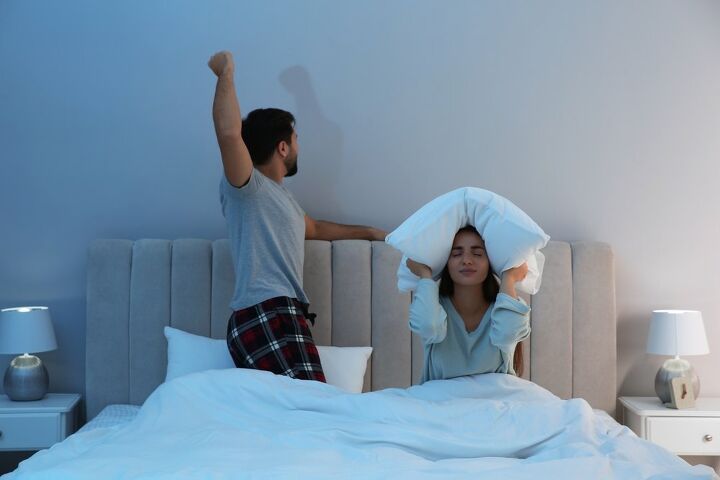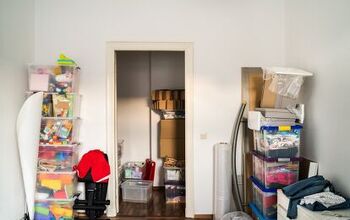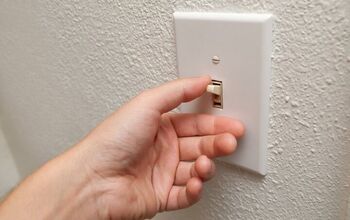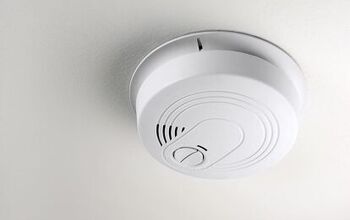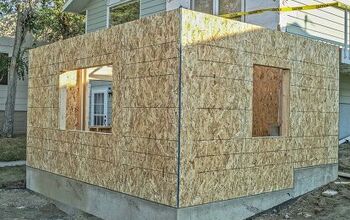How to Stop Your Neighbor From Playing Loud Music

It can be quite annoying when your neighbor makes it hard to get some peace and quiet. Being considerate is part of being a good neighbor, but not everyone understands this. If you’re like many people, you may struggle with how to stop your neighbor from playing loud music.
The best way to stop your neighbor from playing loud music is to leave a note at their door or speak to them. Be as polite as possible and explain why the loud music makes it hard to relax at your home. Contact a mediator, lawyer, or the local police via the non-emergency line if they keep playing loud music.
Check the local noise curfew to see if they are playing loud music at a time when they aren’t supposed to. Follow along as we explore how to stop your neighbor from playing loud music.
What Can I Do If My Neighbor Keeps Playing Loud Music?
1. Speak To Them
The best way to stop your neighbor from playing loud music is to speak to them. This may seem like an uncomfortable conversation, but it should go smoothly if you are calm and polite. You can simply approach them and politely let them know that the music they are playing is quite loud.
Of course, the conversation will be more comfortable if you already know your neighbor. However, you should still approach your neighbor to let them know about the noise disturbance even if you don’t know them. If you are polite about it, there’s no reason they should be offended.
2. Leave A Note
Understandably, you may be uncomfortable telling your neighbor to stop playing loud music. Nobody likes conflict, so it may be better to leave a note on their door or porch to let them know about the loud music.
This may not immediately get them to stop playing loud music, but it will at least make them aware of the situation. Make sure to word the note politely, so it doesn’t come off as aggressive or condescending. You don’t need to identify yourself in the note, and an anonymous letter should be just as effective.
3. Contact Your Landlord
The easiest way to stop your neighbor from playing loud music as a tenant is to contact your landlord. Landlords serve as the perfect middle ground between you and your neighbor, as they are ultimately authority figures.
They are supposed to handle everything that is agreed upon in your lease agreement, but they can also help mediate the relationship between you and your neighbor.
Your landlord should pass this information on anonymously without citing you as the person who reported them. If you’re worried about straining the relationship with your neighbor, you can simply remind your landlord not to reference you.
Noise violations often serve as strikes in lease agreements, so the fear of repercussions should be enough to scare your neighbor to stop playing loud music.
4. Cite The Local Laws
Noise disturbance laws vary between towns, cities, and even states. Luckily, it’s quite easy to find the local noise ordinance in your area that highlights what is acceptable. Cite the local laws if your neighbor keeps playing loud music even after they are aware that it’s a nuisance.
These laws refer to both the volume and timing of the noise, including music, activity, and construction. Let your neighbor know about the local noise laws, but don’t threaten them with repercussions. This will only make your relationship more contentious. Simply letting them know about the local laws should hopefully be enough to make your neighbor stop playing loud music.
5. Talk To Your Other Neighbors
If you can hear your neighbor’s loud music, then there’s a chance your other neighbors can hear it as well. This is especially true if you live in a neighborhood with houses that are packed together closely. Talk to your other neighbors who don’t play loud music and see if they have noticed the same problem.
Strength in numbers is a real thing, and it may be the wake-up call that your noisy neighbor needs to hear. You can still leave a note to tell your neighbor about the noise problem, but you’ll have better results if your other neighbors do as well. The noisy neighbor will understand the message more clearly if it’s not just you who reports being annoyed by it.
6. Report It To The HOA
Make a noise complaint to the HOA if you live in an HOA neighborhood. HOAs, or homeowner associations, help manage and regulate neighborhoods. Their influence affects everything from lawn maintenance and decorations to noise curfews.
The average HOA has a lot of power, and you can use this to your advantage to get your neighbor to stop playing loud music. Report the problem to your HOA and let them deal with it so you don’t have to interact with your neighbor. That’s a great option if you have a bad relationship or don’t even know them at all.
7. Check The Noise Curfew
While it can be annoying when your neighbor is playing loud music, they may be doing it lawfully. Many towns and cities have noise curfews. Your neighbor can typically play music until this curfew if they don’t exceed the volume threshold.
It’s a great idea to familiarize yourself with the local noise curfew to see if your neighbor is in the wrong for playing loud music. As annoying as it is, there’s ultimately nothing you can do before the noise curfew if your neighbor doesn’t play music loud enough to commit a noise violation.
8. Make A Noise Complaint
Make a noise complaint if your neighbor won’t stop playing loud music. This won’t get them in a lot of trouble in most cases, but it will make them wake up to how much they’ve inconvenienced their neighbors. Your local police department can handle noise violations.
However, you must not call 911 in this scenario. Instead, you must call the non-emergency line to file a noise complaint. The emergency line is meant for immediate threats and injuries, so the last thing you want to do is take away from that.
Police responders often show up for noise violations, but it may not happen as quickly as you’d like. That’s okay, however, as the presence of police will at least let your neighbors know they can’t play loud music like that without repercussions.
9. Document It
Does your neighbor frequently play loud music? If so, you should document it as often as possible with your phone or a camera. This will help you build a case if you must present evidence to local authorities, lawyers, mediators, or your HOA.
Record the incidents as they occur and make sure to time stamp them. That way, you can establish a timeline and add validity to your complaints.
10. Reach Out To A Lawyer
If you don’t live in a HOA neighborhood or apartment complex, it can be hard to stop your neighbor from playing loud music. In that case, your best bet may be to reach out to a lawyer. Lawsuits are tricky, expensive, and in some cases, a major gamble.
Because of that, you should only sue your neighbor if you have evidence of continual noise violations. That’s why it’s important to document the incidents so you can back up your case. This should be your last resort, as it will undoubtedly strain your relationship with your neighbor.
These types of cases go to small claims court. That isn’t nearly as stressful or dramatic as a major claim or criminal trial, but it should get your neighbor to stop playing loud music.
How Loud Does Music Have To Be For Your Neighbors To Hear It?
Your neighbors can likely hear music coming from your house if it exceeds 70 dB. That said, it varies based on several factors, such as how close your neighbors are to your house. It also depends on whether you’re playing the music in your yard or inside your home.
Try to stay within the 55-60 dB range to avoid disturbing your neighbors. If all else fails, simply walk out into your yard to see if the music is playing too loudly.
Summing It Up
Speak to your neighbor, leave a note, or report it to the HOA if they won’t stop playing loud music. You can also stop your neighbor from playing loud music if you file a noise complaint with the local police department. In extreme cases, you can also reach out to a mediator or file a lawsuit to get your neighbor to stop playing loud music.
Related Guides:

Nick Durante is a professional writer with a primary focus on home improvement. When he is not writing about home improvement or taking on projects around the house, he likes to read and create art. He is always looking towards the newest trends in home improvement.
More by Nick Durante



